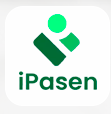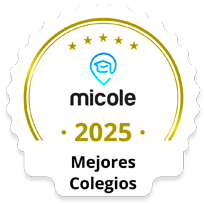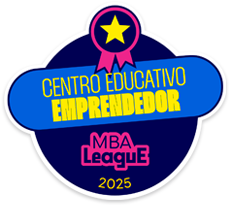Pre-Primary First Cycle
Welcome to Pre-primary First Cycle at Platero Green School. The information is structured as follows:
Facilities
Platero Pre-Primary School is located on an independent 272 square metre plot adjacent to the Platero Green School, on Calle Baja 23, within the El Candado Urbanization.
It boasts brand new facilities, with lots of natural light and open and spacious classrooms which benefit the development of our students:
- Hall Administration
- Classroom with capacity for 15 students from 0 to 2 years.
- Classroom with capacity for 20 students from 2 to 3 years.
- 3 bathrooms.
- Kitchen.
- Living-dining room.
- Multipurpose room.
- 80 square metre outdoor patio.
Methodology
Pedagogical and support guidelines
Our guidelines are based on natural and experiential learning processes, a holistic approach that fosters significant learning through shared living. Thanks to our welcoming spaces and through relevant experiences we create an affective environment that promotes our students’ well-being and emotional development. The different environments encourage discovery, in an amiable way, allowing the boys and girls to connect with their needs and interests.
Time and space are organized in a flexible manner, always adapting to the various learning rhythms and structured as follows (click on what you wish to read or click again to close).
We set up different environments to satisfy our students interests. This type of organization fosters socialization, autonomy and peer cooperation. The classroom is divided into play areas, where they can enhance their creativity and imagination, manipulating and imitating experientially.
The students rotate at will and voluntarily through the various play areas. The materials, games and elements that conform these environments all selected based on their educational features, in terms of age and the different learning rhythms of each child. Their presentation and organization are modified to constantly stimulate the curiosity and inquisitiveness of our students.
In the classroom, on the one hand, we work on projects based on our students’ proposals in line with their interests; and on the other, the teachers put forward pedagogical proposals on varied topics which are deemed to be of interest. The work carried out is eminently play orientated and all the school’s facilities are employed. The aim of this work dynamic is to offer our students first hand crystalizing experiences.
The workshops are organized as ateliers, in which the spaces used and proposed activities are planned around art and music. The situations and resources employed are designed to create emotions, interest, discovery… affording the students unique and enriching experiences.
We celebrate important days which possess cross-curricular learning opportunities which link to multiple educational dimensions: civic, moral, intercultural education; as well as values formation, such as solidarity, empathy, commitment, respect, etc. Activities are carried out throughout the week prior to the celebration, addressing the subject through meaningful experiences.
Questions, concerns and doubts arise from the day-to-day experiences of our students, and teachers can address them by making all the necessary resources available through investigation, digital resources and family input.
Daily psychomotricity sessions are conducted both inside and outside the classroom. Thanks to this motor development, the boys and girls get to know their bodies, its potential and limitations, and build their self-concept. The sessions are play orientated and consist of motor skills circuits, music, dance and dramatization, etc.
We start from the assumption that emotional education is not taught or learnt: it is experienced. A school that feels emotion is a school that listens, that empathises, that discusses. The boys and girls learn to know themselves and self-regulate by listening to their own ideas, emotions and feelings, and also, those of the people who are around them.
Exposing students to other languages makes it easier for them to perceive and pronounce certain phonemes, this in turn aids their linguistic development.
We place a lot of importance on attendance, which is so necessary for this age group. Hygiene, diet and rest are all part of life in the classroom. Intimately connected to these are their daily routines, crucial at this stage. They are designed to promote student autonomy and responsibility, providing them with security and stability. Routines confer structure to school life, providing students with guidance and a sense of time.
Our educational activity is based on providing students with situations which allow them to build their personalities, cognitive structures, that is their “know how and know how to be…” Assessment at this stage allows us to understand, make decisions to improve our educational practice and detect, analyse and assess the development processes of our students. This assessment is global, formative, process based and continuous. This assessment takes into account and respects the students’ different learning rates. The assessment is carried out individually by the tutor, but always comparing their opinions with those of the other teaching staff members, as well as sharing their perceptions with parents at regular meetings, in which additional information is shared.
Our classrooms are equipped with the following elements:
- Screen
- Loudspeakers
- Internet access
- Tablet
Additionally, families can access both general information and their children’s personal information through the school’s web page and the KinderClse application.
Teachers, through observation and active listening, will, based on the students’ characteristics, detect their individual interests, abilities and needs, in a role that consists of acting as mediator and facilitator.
There are several channels of communication and collaboration, by means of information exchange and family participation in school life. We encourage family-school relationships, we share responsibilities and we work together to develop our students’ full potential.
Timetable
Pre-Primary First Cycle
| Horario del Centro de 07:30 a 20:00 | Servicio de atención socioeducativa de 07:30 a 17:00 | Aula matinal |
|---|---|---|
| Breakfast | ||
| Lunch | ||
| Break | ||
| Play workshop from 17:00 to 20:00 | ||
Services
Morning club
This service is provided to favour a healthy work-life balance. It is available between 07:30 and 09:00 hours. Students, under supervision, can share the day’s first moments interacting and playing freely
School lunches
Platero has its own kitchen, so it prepares all its food daily in its own facilities, offering a menu with plenty of variety, made with the best ingredients which are chosen following rigorous quality checks.
Our team of nutritionists elaborate varied and balanced menus that guarantee a good diet for our students. The school encourages the frequent consumption of vegetables, fruit and fish so that, from a young age, they are accustomed to eating a variety of foods and incorporate them into their regular diet.
The following aspects are of key importance in our canteen service:
- Offer a diet which is adapted to the first stage of development.
- Design varied and balanced menus, complying with the adequate consumption frequency of the various food types.
- Encourage healthy and natural nutrition from early childhood.
- Provide for allergy and other specific needs, safeguarding their health and securing their growth.
Play workshop
Fun educational and play activities are carried out for students. This service is subject to a minimum of 10 subscribed users.
Plateroteca
The schools offers families the use of a leisure venue, with a 10 % discount, where they can celebrate birthdays, training and development sessions and other events, 365 days a year.
More information: www.plateroteca.es
Teachers of this Cycle
Introduction

Tamara López Mellado

Raquel Ruiz Morales

Elena Pérez Muñoz




















